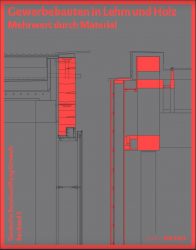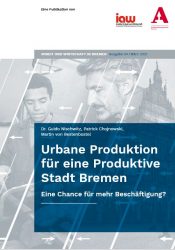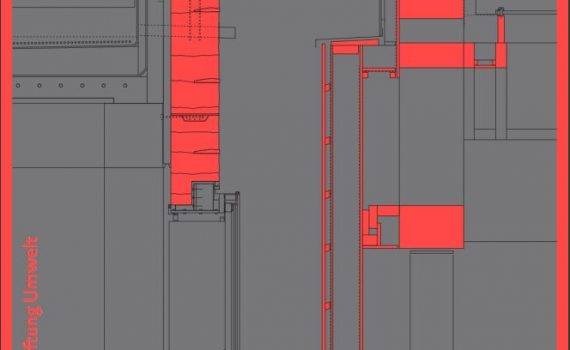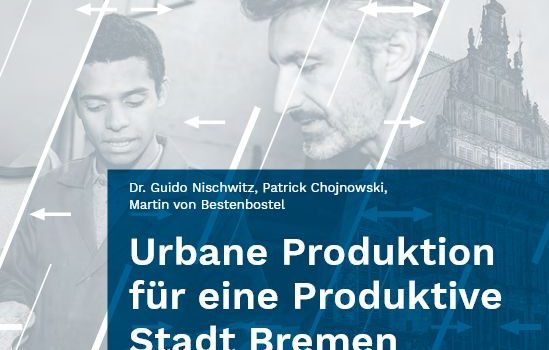 Samstag, 15. Juni 2024
14.00 Uhr Eröffnung
mit Bürgermeisterin Monika Neuhöfer-Avdić
und Singer-Songwriter Auftakt
15.00 Uhr Vernissage
„Zeitzeugen der Lauffenmühle“
15.30 Uhr Vernissage „Lokale Kunstschaffende“
16.30 Uhr Narrenzunft Lörrach
„S‘isch wie‘s isch“
17.30 Uhr Peter Reimtgut
„Das ist Leben“
19.00 Uhr The Kerstin
„slightly distracted“, mit Pheat
Sonntag, 16. Juni 2024
11.00 Uhr Narrenzunft Lörrach
„S‘isch wie‘s isch“
12.00 Uhr Hellbergschule
mit Musik- und Tanz-AG
14.00 Uhr Führung
über das Lauffenmühle-Areal
15.00 Uhr Nachbarschaftstreff
mit Kaffee und Kuchen
15.30 Uhr „ALFA“ Percussion Ensemble
Städtische Musikschule
16.00 Uhr Bands „Greenhorns“ und „Marshmallow
Fighters“, Städtische Musikschule
17.00 Uhr Führung über das Lauffenmühle-Areal
18.00 Uhr Performance „Brunch Boys“
mit Schlagzeug und Effekten
Samstag, 15. Juni 2024
14.00 Uhr Eröffnung
mit Bürgermeisterin Monika Neuhöfer-Avdić
und Singer-Songwriter Auftakt
15.00 Uhr Vernissage
„Zeitzeugen der Lauffenmühle“
15.30 Uhr Vernissage „Lokale Kunstschaffende“
16.30 Uhr Narrenzunft Lörrach
„S‘isch wie‘s isch“
17.30 Uhr Peter Reimtgut
„Das ist Leben“
19.00 Uhr The Kerstin
„slightly distracted“, mit Pheat
Sonntag, 16. Juni 2024
11.00 Uhr Narrenzunft Lörrach
„S‘isch wie‘s isch“
12.00 Uhr Hellbergschule
mit Musik- und Tanz-AG
14.00 Uhr Führung
über das Lauffenmühle-Areal
15.00 Uhr Nachbarschaftstreff
mit Kaffee und Kuchen
15.30 Uhr „ALFA“ Percussion Ensemble
Städtische Musikschule
16.00 Uhr Bands „Greenhorns“ und „Marshmallow
Fighters“, Städtische Musikschule
17.00 Uhr Führung über das Lauffenmühle-Areal
18.00 Uhr Performance „Brunch Boys“
mit Schlagzeug und Effekten
Kategorie für Blog: Urban production
After years of separating living and working, production in the city was lost from view, outsourced from the cities. The productive city is currently the subject of intense debate, triggered by changes in production methods and new possibilities for a mix of uses. There is still a lack of nationwide studies and data analyses, especially with regard to employment effects and spatial differentiation.
 Author of the book review: Roman Schaurhofer, Vienna
The construction volume "Commercial Buildings in Clay and Wood - Added Value through Material" was published in 2020 by Sabine Djahanschah of the Deutsche Bundesstiftung Umwelt (German Federal Foundation for the Environment) at Verlag Detail. The publication, which appeared in book form, deals with the use of the building materials wood and clay in the construction of commercially used buildings. To this end, six buildings with commercial use were analysed in terms of their architectural construction and technical quality features and evaluated with the help of measurements, surveys and life cycle assessments.
Author of the book review: Roman Schaurhofer, Vienna
The construction volume "Commercial Buildings in Clay and Wood - Added Value through Material" was published in 2020 by Sabine Djahanschah of the Deutsche Bundesstiftung Umwelt (German Federal Foundation for the Environment) at Verlag Detail. The publication, which appeared in book form, deals with the use of the building materials wood and clay in the construction of commercially used buildings. To this end, six buildings with commercial use were analysed in terms of their architectural construction and technical quality features and evaluated with the help of measurements, surveys and life cycle assessments.
Explained in just under 10 min. The video is from April 2019 and shows two larger aquaponics facilities in Berlin.
The Special price on the topic "Urban development revisited: Prices - Practice - Perspectives" was given to the project Urban development area Stuttgarter Straße, French Quarter in Tübingen. The special prize, which is awarded in parallel to the urban development prize, serves to highlight particularly urgent fields of action in urban development and urban planning. It was awarded on 23.4.2021 on the occasion of the 40th anniversary of the German Urban Development Prize to contributions that had already been recognised with prizes and awards between 1980 and 2010. The judging of the special prize was very complex, as it had to cover a span of 30 years, i.e. a generation, of the achievements of German urban development that were considered outstanding at the time, and, in retrospect, it had to be based on robust, objective criteria that could adequately reflect the complexity of 30 years of urban development history and 30 years of urban development models.
 The prize is awarded every two years by the German Academy for Urban Development and Regional Planning (DASL) with significant support from the Wüstenrot Foundation. Urban Development Award in the DSP 2020 competition goes to the project Quarter at the former Blumengroßmark in Berlin. With 81 applications, a particularly large number of projects were submitted for the Urban Design Award. The spectrum was very broad: urban-structural-geographical, thematic, structural-spatial. From the new town hall in the urban planning context of a small municipality to the large conversion project of a metropolitan region, the interdisciplinary jury (urban planning, architecture, open space planning, preservation of historical monuments, economics, sociology) was faced with a very difficult decision in many cases.
The prize is awarded every two years by the German Academy for Urban Development and Regional Planning (DASL) with significant support from the Wüstenrot Foundation. Urban Development Award in the DSP 2020 competition goes to the project Quarter at the former Blumengroßmark in Berlin. With 81 applications, a particularly large number of projects were submitted for the Urban Design Award. The spectrum was very broad: urban-structural-geographical, thematic, structural-spatial. From the new town hall in the urban planning context of a small municipality to the large conversion project of a metropolitan region, the interdisciplinary jury (urban planning, architecture, open space planning, preservation of historical monuments, economics, sociology) was faced with a very difficult decision in many cases.
 In a research project of the iaw, the conceptual foundations of urban production and the productive city were prepared with a view to the situation in Bremen and analysed in their impact structure. The study makes proposals for describing and recording urban production that is compatible with the city and embedding it in an urban development policy model of a productive city. On the basis of seven reference cities (Vienna, Zurich, Stuttgart, Hamburg, Frankfurt am Main, Wuppertal, Bochum), corresponding activities were filtered out and their transferability to the city of Bremen was examined. In the city of Bremen, eight locations and neighbourhoods (including the Tabakquartier and Kellogg-Areal) were examined with regard to their potential for implementing a productive city.
In a research project of the iaw, the conceptual foundations of urban production and the productive city were prepared with a view to the situation in Bremen and analysed in their impact structure. The study makes proposals for describing and recording urban production that is compatible with the city and embedding it in an urban development policy model of a productive city. On the basis of seven reference cities (Vienna, Zurich, Stuttgart, Hamburg, Frankfurt am Main, Wuppertal, Bochum), corresponding activities were filtered out and their transferability to the city of Bremen was examined. In the city of Bremen, eight locations and neighbourhoods (including the Tabakquartier and Kellogg-Areal) were examined with regard to their potential for implementing a productive city.
 The aim of the handbook is to provide municipal actors with concrete tools that can be used to keep and locate production in urban areas. In the joint project UrbaneProduktion.Ruhr, funded by the Federal Ministry of Education and Research, research was carried out from October 2016 to December 2019 into whether and how it is possible to bring production back to the city.
The aim of the handbook is to provide municipal actors with concrete tools that can be used to keep and locate production in urban areas. In the joint project UrbaneProduktion.Ruhr, funded by the Federal Ministry of Education and Research, research was carried out from October 2016 to December 2019 into whether and how it is possible to bring production back to the city.
Cooperation between Stadtwerke and berlinovo for largest German tenant power project Mietersonne Kaulsdorf, the largest German tenant power project with a capacity of almost 3.4 megawatts (MW), is being built by Berliner Stadtwerke for the Berlin housing association berlinovo in Marzahn-Hellersdorf. Tenants of 4,300 apartments will be able to benefit from the green electricity generated directly on their roofs.
The carbon footprint calculator developed by the ifeu Institute in Heidelberg can be used to calculate the greenhouse gas emissions of food. The website also provides tips and advice on how to become a "climatarian", i.e. how to adopt a climate-friendly diet. The CO2 foodprint is calculated. This is the proportion of one's CO2 emissions that are caused by food. Link www.klimatarier.com/de/CO2_Rechner
Anne Katrin Bohle has been State Secretary for Construction at the Federal Ministry of the Interior, Building and Housing since March 2019. The "Leipzig Charter" is to be further developed into the "Leipzig Charter 2.0" by the time of the German EU Council Presidency in 2020. The "Leipzig Charter", which is little known even among experts, invokes the values of "citizens' co-determination and self-determination, calls for the [...]
"Düsseldorfer Erklärung zum Städtebaurecht" (Düsseldorf Declaration on Urban Planning Law) 50 city planning councillors, department heads and heads of planning offices from over 40 German cities, including Hamburg, Hanover, Munich, Cologne, Bochum, Freiburg, Stuttgart and Frankfurt am Main, have signed the "Düsseldorfer Erklärung zum Städtebaurecht" (Düsseldorf Declaration on Urban Planning Law). They are calling for a fundamental amendment of the Building Use Ordinance (BauNVO) and the administrative regulation TA-Lärm, so that in future beautiful and [...]
Funding guideline comes into force on 1 March 2018 With the so-called small series guideline, the Federal Environment Ministry is launching a new funding programme as part of the National Climate Initiative. Funding is available for products and processes for climate protection that are already ready for the market but have not yet made the breakthrough. The guideline will enter into force on 1 March 2018 [...].
On 1 and 2 June 2018 in Berlin Venue: Kalkscheune Berlin, Johannisstraße 2, 10117 Berlin The demands on cities and regions as places to work are changing with the ongoing economic structural change. After industrialization and tertiarization, digitalization brings new profound changes for the world of work and thus new challenges for the [...]






